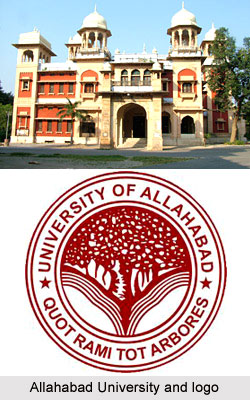 Allahabad University is in fact regarded as the fourth modern university in India and was established on 23rd September 1887. Initially it began as an affiliating and examining body for graduate and post-graduate programs with a class orientation in different branches of learning. It also had the responsibility of secondary education. In 1951 the university recognized certain local institutions as Associated Colleges to impart degree in various programs. After four decades of its re-organization it has achieved fame both nationally and internationally.
Allahabad University is in fact regarded as the fourth modern university in India and was established on 23rd September 1887. Initially it began as an affiliating and examining body for graduate and post-graduate programs with a class orientation in different branches of learning. It also had the responsibility of secondary education. In 1951 the university recognized certain local institutions as Associated Colleges to impart degree in various programs. After four decades of its re-organization it has achieved fame both nationally and internationally.
History of Allahabad University
The foundation stone of the Muir Central College was laid by Governor-General of India, Lord Northbrook on December 9, 1873. It was named after Sir William Muir, Lt. Governor of United Province, who was instrumental in its foundation. It functioned initially under University of Calcutta, and later, on 23 September 1887, the University of Allahabad was established, making it the fourth modern university established in India.
It began as an affiliating and examining body for graduate and postgraduate degrees. By 1904 the university established its own teaching departments as well as introduced doctoral research programmes. The University Senate hall was opened by the Lieutenant-Governor, Sir John Hewett, in 1912.
The State Government accorded it formal recognition in July 1992 as a `Premier Institution` (Vishesh Agrani Sanstha).
Faculties of Allahabad University
The subjects in which Faculty of Arts offer degrees and perform research at the university are Arabic and Persian, Anthropology, Education, Geography, English and Modern European Languages, Music and Performing Arts, Medieval and Modern History, Philosophy, Hindi, Physical Education, Psychology, Political Science, Urdu, Sanskrit, Journalism and Mass Communication. The subjects in which the Faculty of Science offer degrees and conduct research programs are Bio-chemistry, Chemistry, Botany, Earth and Planetary Sciences, Defence and Strategic Studies, photography, Physics, Electronics and Communication, Physics, Mathematics, Zoology, Statistics, Bioinformatics, Biotechnology and Home Science. There is also a faculty of Law, which offers several judicial programs.
The university has showed remarkable progress in the 118 years of its existence. Beside the regular undergraduate and post graduate programs the university also offers a list of professional programs in Business Management, Law, Electronic and Tele-communication, Medicine, Human Resource Development, Educational Training, Journalism and Mass Communication and many more. A number of vocational programs have also been provided in the graduate degree programs in accordance with the UGC Scheme for vocational courses. Several courses are also offered by the Institute of Professional Studies (IPS) and have been designed accordingly to the emerging requirements for specialized personnel in various arenas.








